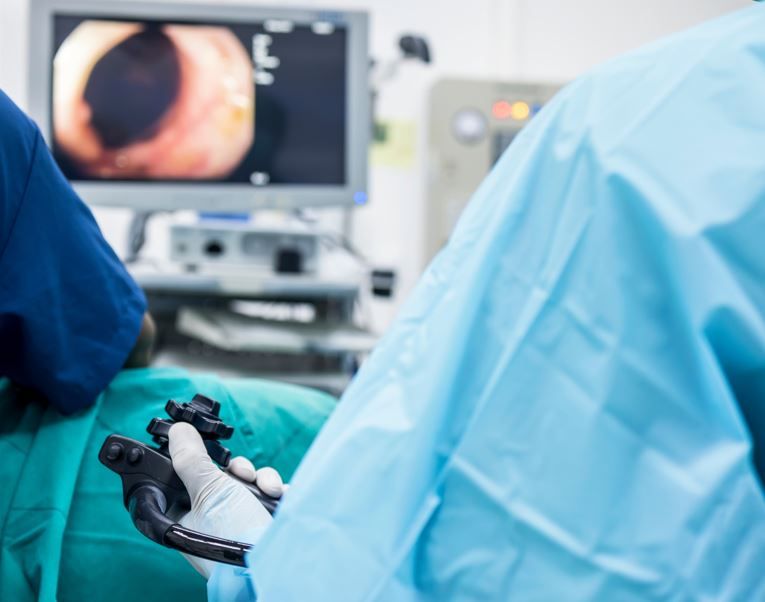Facility-based colorectal cancer (CRC) screening among adults aged 45 to 49 years increased nearly 10-fold following the 2021 US Preventive Services Task Force (USPSTF) guideline change, according to a research letter published November 4 in JAMA Network Open.
The cohort study analyzed 7 802 606 CRC screening encounters from more than 1350 US hospitals in the Vizient Clinical Data Base between January 2016 and December 2024. The proportion of screenings involving individuals aged 45 to 49 years rose from 2.9% in the prechange period (January 2016 to May 2018) to 17.8% in the postchange period (June 2021 to December 2023).
Mean monthly screening volume in the 45- to 49-year age group increased 948%, from 1578 in the prechange period to 16 534 in the postchange period. By comparison, screening monthly volume among those aged 50 to 75 years increased 46% during the same timeframe, from 52 348 pre-change to 76 503 post-change.
"The ACS in 2018 and USPSTF in 2021 recommended screening at age 45 years for average-risk individuals, which expanded eligibility to approximately 20 million adults aged 45 to 49 years; however, absolute uptake remains low. Although increases in screening have been noted among privately insured individuals, little facility-based, all-payer evidence exists on the impact of guideline changes," authors wrote.
The study examined 3 periods corresponding to major guideline updates: prechange (before the American Cancer Society's 2018 recommendation to begin screening at age 45), interim (June 2018 to May 2021), and postchange (after the USPSTF adopted the age 45 recommendation in 2021).
Key Takeaways
- Dramatic uptake in younger screening group. Facility-based CRC screening among adults aged 45 to 49 years increased 955% following the 2021 USPSTF guideline change.
- Rapid guideline adoption. The proportion of all CRC screenings involving 45- to 49-year-olds increased from 2.9% before guideline changes to 17.8% in the postchange period.
- Growth far exceeded older age group. While screening volume increased 955% among 45- to 49-year-olds, the 50- to 75-year age group saw only a 46% increase during the same period.
- Demographic disparities persist. Postchange screening in the younger age group showed decreased representation of non-Hispanic Black individuals, Medicare enrollees, and those from high-vulnerability neighborhoods vs the prechange period.
- Guideline changes address rising incidence. CRC rates among adults younger than 50 years increased 2.4% annually between 2012 and 2021.
Demographic Patterns. In the postchange period, most screened individuals aged 45 to 49 years were female (57.0%), non-Hispanic White (53.3%), commercially insured (74.2%), and from average socioeconomic vulnerability neighborhoods (59.5%).
Compared with the prechange period, the postchange period showed statistically significant differences across race, ethnicity, payer, and vulnerability groups. Non-Hispanic Black representation decreased by 4.1 percentage points, Medicare enrollees decreased by 2.3 percentage points, and individuals from high-vulnerability neighborhoods decreased by 1.6 percentage points. Hispanic representation increased by 7.4 percentage points.
Study Context. Colorectal cancer remains the second leading cause of cancer-related mortality in the US. While incidence among adults aged 65 years and older has declined, rates among those younger than 50 years increased 2.4% annually between 2012 and 2021.
The guideline changes expanded screening eligibility to approximately 20 million adults aged 45 to 49 years. The ACS recommended screening at age 45 for average-risk individuals in 2018, followed by the USPSTF in 2021.
"These findings reflect CRC screening in hospitals, where guideline adoption is critical to shaping clinical practice and building momentum toward broader public health impact," researchers concluded. "Continued efforts to sustain this momentum may help optimize uptake. Although opportunities remain to address disparities and investigate at-home screening, this highlights the early success of facility-based guideline implementation."
Limitations and Implications. The study was limited to facility-based screening and did not capture at-home tests or differentiate by hospital type. Variation in coding practices and underrepresentation of smaller or rural hospitals may affect generalizability. The relatively short study intervals may limit assessment of longer-term patterns.
Lead author Alyssa H. Harris, MPH, of Vizient Inc and Northern Illinois University, and colleagues noted that increases during the interim period across both age groups may reflect public health campaigns and early uptake of the ACS recommendation before USPSTF changes.
The authors stated that while opportunities remain to address disparities and investigate at-home screening, the findings highlight early success of facility-based guideline implementation.
Reference: Harris AH, Murphy HR, McDowell M, Wright ME, Hughes MC. Facility-based uptake of colorectal cancer screening in 45- to 49-year-olds after US guideline changes. JAMA Netw Open. 2025;8(11):e2541330. doi:10.1001/jamanetworkopen.2025.41330

